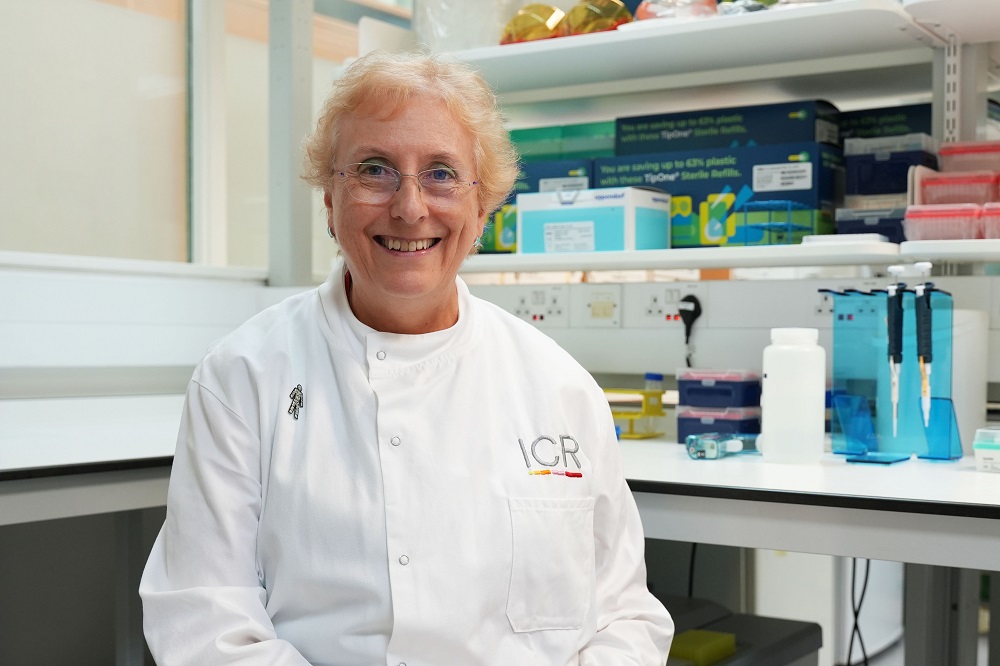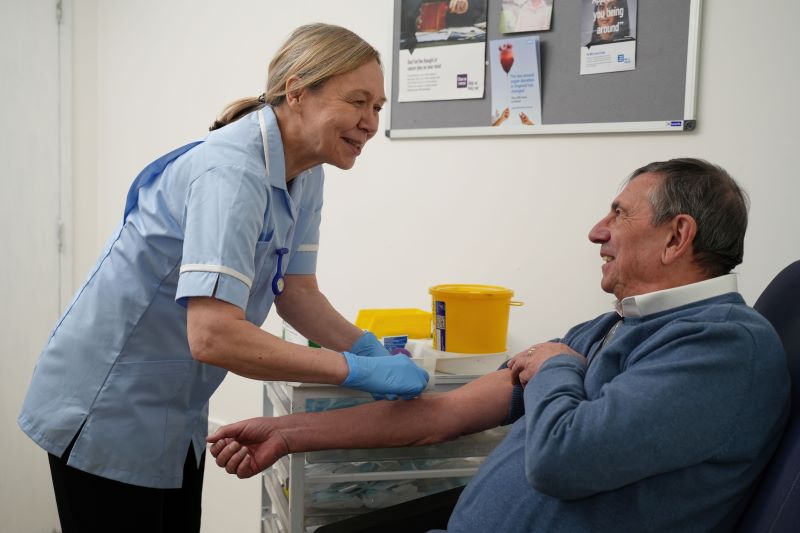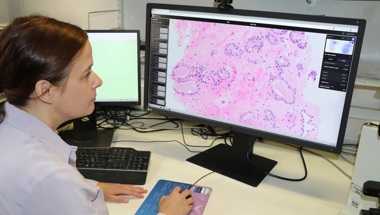Research
21 Oct 2024Our new £1.5m AI and genetics project to find men with deadliest prostate cancers early
The researchers aim to develop a test that can spot which men have aggressive disease at diagnosis – giving these men a better chance of getting the vital treatment they need.

Doctors could predict whether a man’s prostate cancer will be aggressive at the point of diagnosis – giving him the best chance of targeted treatment before it spreads – thanks to a new £1.5 million research project we’re funding.
The research will harness artificial intelligence (AI) and cutting-edge genetic analysis to look for tell-tale genetic signatures in blood and tumour samples from men whose cancer is aggressive.
This information will be used to develop a tool that can predict from a blood sample whether a man’s prostate cancer is going to be aggressive.
That would help these men get targeted, tailor-made treatments before their cancer begins to spread – ensuring that the length and quality of their lives isn’t left to chance.
Spotting DNA changes linked to aggressive prostate cancer

The research will be led by Professor Ros Eeles, a world-renowned geneticist at The Institute of Cancer Research, London who has helped find more than 160 genetic differences that contribute to a man’s risk of prostate cancer.
She’ll be joined by experts from the University of East Anglia, the University of Manchester, the University of Oxford, and the University of Cambridge.
Explaining the project, Professor Eeles said: “We have a huge amount of genetic data from thousands of men who come from diverse backgrounds and ethnicities around the world.
“We’re going to use advanced AI to look at this data and identify patterns that will unlock answers to which specific DNA changes are linked to more aggressive prostate cancers that spread quickly.
“Armed with this knowledge, we’ll develop a model that can predict whether a man’s prostate cancer is going to be aggressive based on a simple blood sample. This will help clinicians overcome significant challenges and could revolutionise the way prostate cancer is diagnosed, treated, and managed.”

Predicting whether cancer will come back
Professor Eeles and her colleagues will also study samples from men who’ve undergone radiotherapy to develop a similar AI model to predict which men’s prostate cancer is likely to come back after treatment – enabling clinicians to tailor therapies and monitor these men closely to prevent it.
The researchers will test the accuracy of these models on samples from men who’ve been diagnosed with prostate cancer and are on active surveillance, as well as samples from men who’ve taken part in STAMPEDE, a clinical trial that’s looking for the best ways to treat men with newly diagnosed advanced prostate cancer.
Professor Eeles is also a lead researcher on our £42m TRANSFORM trial, the biggest prostate cancer screening trial in decades. TRANSFORM aims to find the best way to screen men for prostate cancer, so that one day all men at risk are invited for regular tests to find aggressive cancers in time for a cure.
We need major research projects like this to give the 1 in 8 men who will get the disease more certainty that they’ll be diagnosed earlier, get the best personalised treatments, and have longer, healthier lives.
We can’t leave anything to chance
Dr Matthew Hobbs, our Director of Research, said: “When a man gets the horrible – and often unexpected – news he has prostate cancer, it’s important that he gets the right action plan for his specific cancer right away.
“Every cancer behaves differently and, at the moment, it’s not easy for a doctor to predict if a man’s disease is going to spread quickly and aggressively around the body. We’ve invested in this research so that eventually men and their doctors will be equipped with more of the information they need to find and treat the deadliest cancers as quickly as possible.
“When it comes to prostate cancer, we can’t leave anything to chance. We need major research projects like this to give the 1 in 8 men who will get the disease more certainty that they’ll be diagnosed earlier, get the best personalised treatments, and have longer, healthier lives.
“None of it would be possible though without Prostate Cancer UK’s generous supporters who have donated and joined our mission to build a world where no man dies of prostate cancer.”
Ask Professor Eeles your questions

On 20 November, we’re hosting a free webinar with Professor Ros Eeles and two other leads from this project – Professor Colin Cooper and Professor Daniel Brewer from the University of East Anglia.
Register now for an opportunity to ask them your burning questions and find out how this research could revolutionise the way we diagnose and treat prostate cancer.







